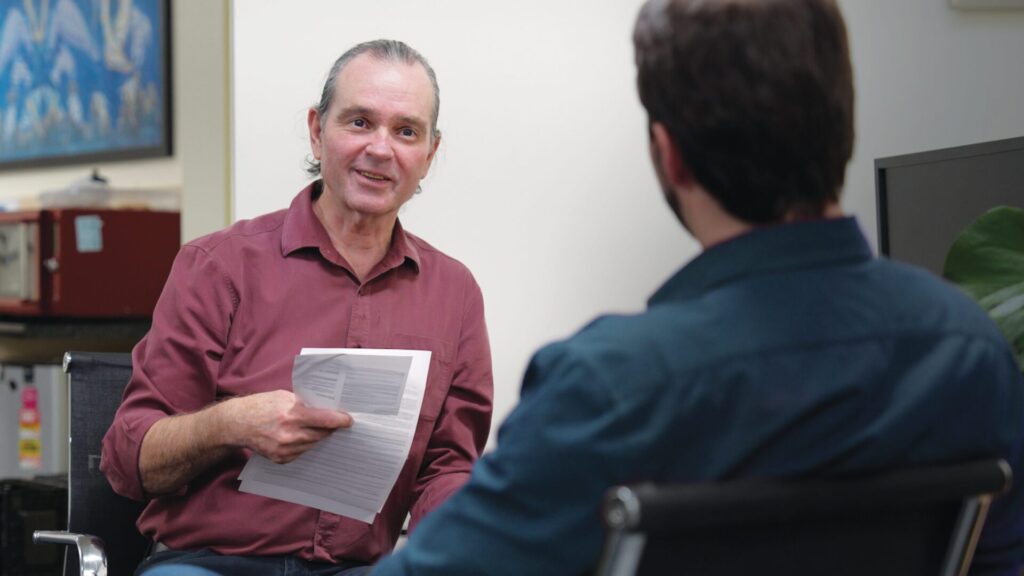A most fascinating medical discovery—made in recent decades—was the revolutionary idea, promoted by Barry Marshall and Robin Warren, that gastritis and peptic ulcer disease was caused by a bacterium colonising the highly acid stomach. Marshall had offered evidence of the relationship when he quaffed a beaker of the bacterium and had become infected. The medical establishment went into intellectual turmoil with many declaring that the idea promoted was misplaced; it was impossible for bacteria to grow in the stomach. Fortunately, subsequent investigations confirmed their findings and the 2005 Nobel Prize in Physiology or Medicine was awarded to them.1
The episode illustrates the well-recognised Semmelweis reflex—rejecting new knowledge because it does not conform to current beliefs. Ignaz Semmelweis, a Hungarian physician, noticed in his Vienna hospital that levels of mortality were much higher in some birthing wards. His investigations showed that the dismal mortality rates were preventable. He required students to wash their hands in chlorinated lime before examining their patients—after coming from morgue dissections. Despite obtaining a precipitous reduction in deaths, the medical establishment was generally against the evidence. His health declined on account of the opposition; he became dispirited, was committed to a mental hospital and died of the disease he had valiantly worked to save others from. Joseph Lister’s subsequent work led to the acceptance of disinfection for the control of infection.2
The mockery that Edward Jenner was subjected to following his experiments, in which he successfully protected children against the deadly smallpox virus by inoculating them with cowpox, is another indication of the human tendency to punish the facts and the individual. The clergy in particular railed against him, indicating the immorality of trying to stop a disease that had been created by God. Finally, Louis Pasteur’s vaccination of a boy bitten by a rabid dog, who faced certain death, advanced vaccine research. The evidence had triumphed over the skeptics.3 Ellen White accepted such evidences given through the advances of science and received vaccination against smallpox and advised her close associates to do likewise.4
This raises the question of how facts are established, which has relevance to both history and science. It thus is significant for both faith (as in the fulfilment of prophecy) and health. There are five generally recognised methods of determining “truth.” These are rationalism (logical and consistent), empiricism (rationalism plus systematic verification), pragmatism (what works), authority (observations of the wise), and revelation (God’s revelation of truth).5
Rationalism is the domain of philosophy; pragmatism unfortunately also can be reflected in TV commercials, testimonials, and by placebos; authority figures can be credible or otherwise (eg, Aristotle, Plato). This leaves revelation and empiricism as the best sources of truth. We well remember that White advised to: “Read the best authors on these subjects [laws of life and health] and obey religiously that which your reason tells you is truth.”6
Some of the early proponents of science, particularly in the areas of infectious diseases and anaesthesiology, established the truth of their assertions by first experimenting on themselves. A few of the great advances made in discovering the cause of various diseases and their control have come via successes using this approach when followed by more systematic experimentation.7 Today the usual practice is to use cell cultures and animals in extensive experimentation before using human volunteers. Even though exceptional outcomes have been achieved and innumerable lives saved through the use of antibiotics and vaccines and untold comfort given through the use of anaesthetics, it is possible occasionally to observe adverse reactions. However, most would not use this as an excuse to avoid using these methods to preserve health. High in their consideration are avoidance of infection and predisposition to chronic diseases and protecting the vulnerable by trying to avoid acting as disease carriers.
The use of anaesthetics, antiseptics, antibiotics, and vaccines has saved the lives of countless millions. Humans accept anaesthetics (most are not natural products) when facing invasive surgery and do not object to surgeons cleaning their hands and using antiseptics (again most are not natural products). Attitudes towards the other saving health aids may differ. For example, a small number of individuals refuse to take antibiotics (many are natural). The reasons offered can be that they wish to rely on their own defences or to limit the chances of bacterial resistance developing, they may hope to enjoy the company of friends during a longer period of convalescence, or they simply disagree with the doctor’s opinion and prescription.8
The use of vaccines, which saves 2 to 3 million lives of children each year,9 can give rise to unusual attitudes. Passive immunisation is accepted readily as a gift from God. Such protection is given to infants by their mothers for around six months, particularly those who are able to drink their mother’s milk.10 Active immunisation can be viewed similarly. It represents a gift of knowledge, allowing the responsiveness of the immune system to be boosted, thereby providing protection against infectious diseases, which came as a consequence of the Fall. Some vaccines represent natural products (weakened or inactivated pathogens, if we can call disease organisms natural). Vaccine effectiveness is heightened through using additives—not all are synthetic products. Human reactions to this protective gift can range from gratefulness to rejection and in extreme cases to arson and murder of those trying to help a community.11
Our health is a treasure for us to protect and each gift of knowledge is ours to manage wisely as good stewards (Proverbs 2:6). It was Edward Jenner, a devout Christian, and a pioneer of vaccination who said, “I am not surprised that men are not grateful to me; but I wonder that they are not grateful to God for the good which He has made me the instrument of conveying to my fellow creatures.”12
Warren Shipton is a former professor in microbiology (Thailand) and missionary.






